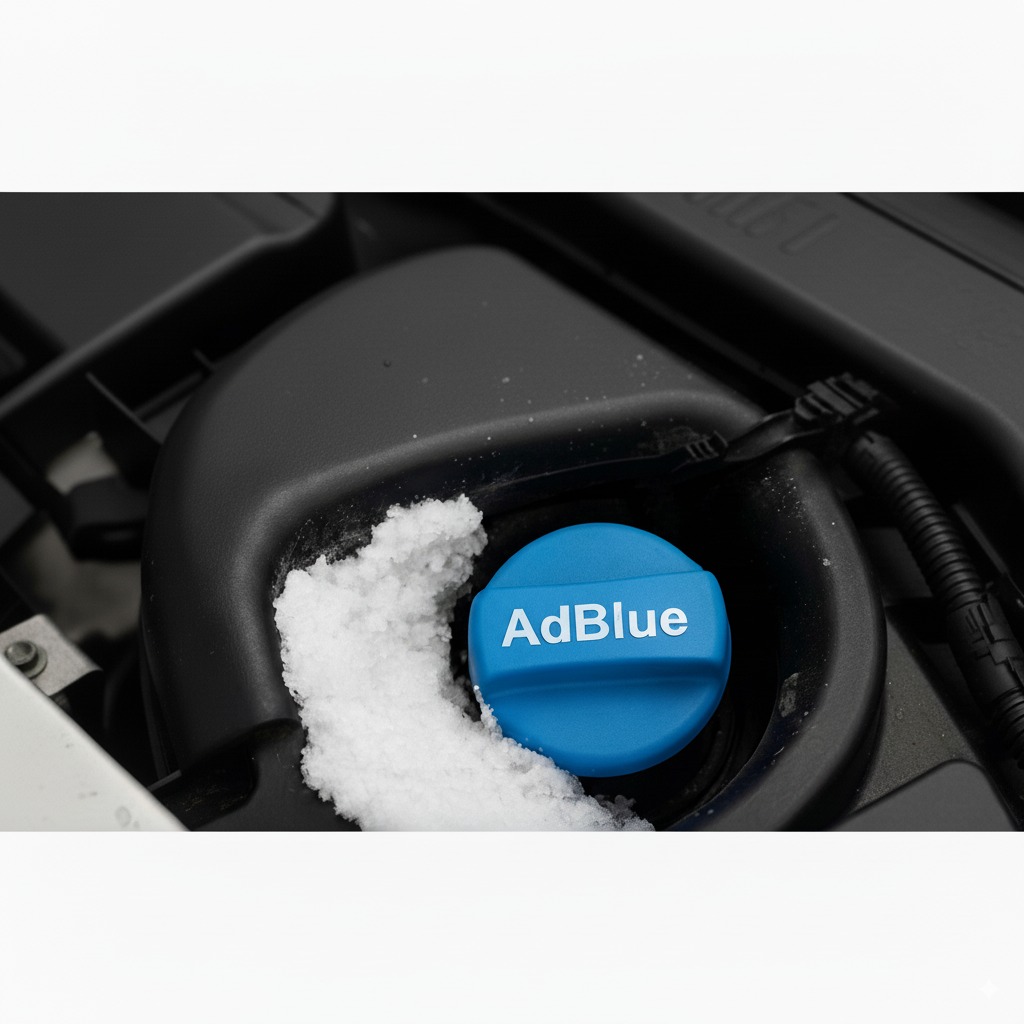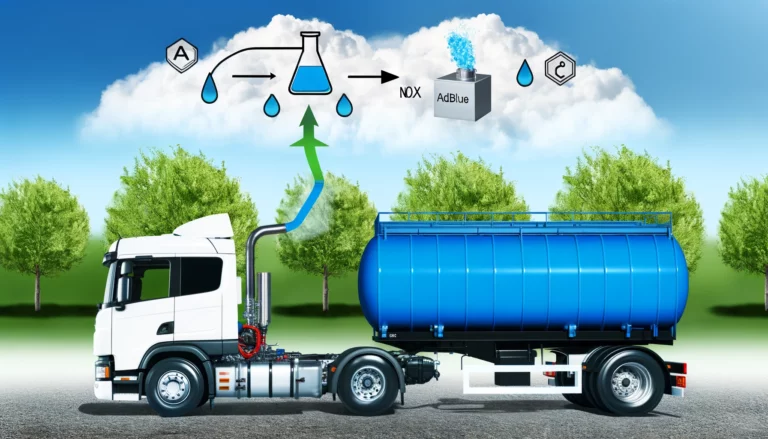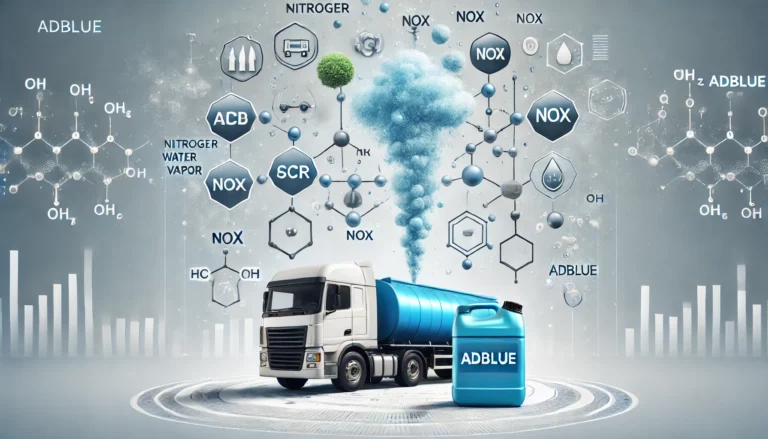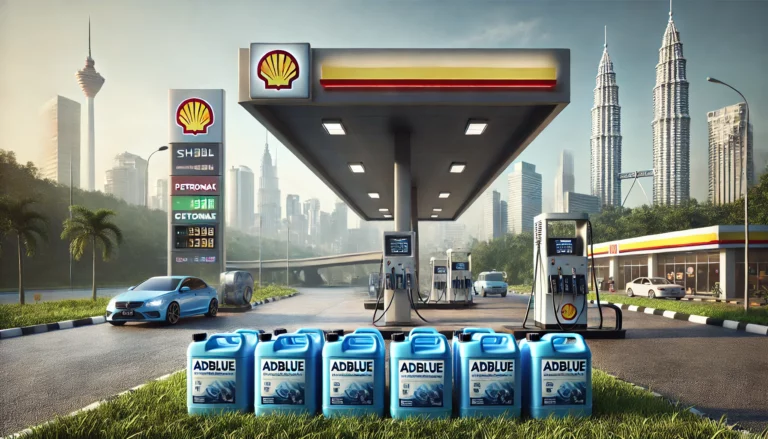AdBlue® (Diesel Exhaust Fluid, DEF) is designed to reduce harmful emissions from diesel engines. It works within the Selective Catalytic Reduction (SCR) system to convert nitrogen oxides into harmless nitrogen and water, allowing vehicles to meet strict environmental standards.
While the system is highly effective, AdBlue can sometimes crystallise under certain conditions. When crystallisation occurs, it creates white deposits that may clog injectors and pipes, trigger dashboard faults, and reduce overall system efficiency. For fleet operators, logistics companies, and individual drivers, understanding this issue is crucial to keeping vehicles compliant and avoiding unnecessary repair costs.
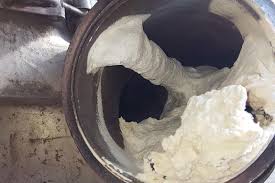
Causes of AdBlue Crystallisation
Climate, Season, and Temperature
AdBlue is sensitive to temperature changes. In hot and humid climates such as Malaysia and Singapore, evaporation can accelerate crystallisation if small amounts of AdBlue are left on injector tips or SCR components. At the other extreme, AdBlue begins to freeze and crystallise below -10°C. This solidification can clog machinery and prevent engines from starting. Even after thawing, crystallised particles may not fully dissolve, leaving behind residues that continue to disrupt the SCR system.
Exposure to Air
When AdBlue is exposed to open air, the water content can quickly evaporate. As the water disappears, the remaining urea becomes concentrated and eventually hardens into crystals. These hardened crystals can attach themselves to injector tips or exhaust components, reducing system efficiency over time.
Poor-Quality or Contaminated AdBlue
The quality of DEF is critical. AdBlue that does not meet ISO 22241 standards may contain impurities such as metals, minerals, or other chemicals that disturb the chemical reactions inside the SCR system. Contamination during handling—such as exposure to fuel, oil, dust, or acidic and alkaline substances—can also disrupt the solution and promote crystal formation.
ECU Calibration and Overdosing
In some retrofit or older diesel vehicles, the Engine Control Unit (ECU) may not be properly configured with the SCR system. If the ECU is not calibrated correctly, it can result in overdosing, where more AdBlue is injected than needed. Excess DEF that is not fully decomposed into ammonia will crystallise inside the exhaust, causing buildup and reducing system efficiency. Faulty dosing modules or injectors can further aggravate this issue by producing uneven spray patterns that prevent proper atomisation.
Improper Storage
Storing AdBlue in non-sealed containers or in environments with extreme heat or cold greatly increases the chance of crystallisation. Heat accelerates evaporation, while cold temperatures trigger freezing. Both scenarios make it more likely for crystals to form and accumulate.
Consequences of Crystallisation
Clogged Systems
Once crystals start forming, they can block injectors, pipes, and pumps inside the SCR system. This blockage disrupts the steady flow of AdBlue, preventing it from reaching the catalyst in the correct amount and at the correct time.
Dashboard Warnings
Crystallisation often triggers electronic warnings in modern vehicles. Drivers may see fault codes or indicator lights related to the emissions system. These alerts can cause downtime for inspections and repairs, adding to operational costs.
Engine Performance Issues
A malfunctioning SCR system directly affects the engine’s efficiency. Vehicles may suffer from reduced power output, increased fuel consumption, and higher operating costs. Additionally, more nitrogen oxides may escape into the atmosphere, raising environmental concerns.
Potential Vehicle Damage
If crystallised AdBlue manages to enter critical engine components, the damage can be severe. Over time, hardened deposits can wear down sensitive parts or even lead to system failure. For commercial fleets, this can mean costly repairs and unplanned downtime that disrupt business operations.
Key Takeaway
AdBlue crystallisation is a manageable issue when understood and addressed early. The problem can often be prevented by using only ISO 22241-certified AdBlue, keeping it sealed in clean containers, and storing it at recommended temperatures. For retrofit diesel vehicles, ensuring proper ECU calibration with the SCR system is critical to avoid overdosing and crystal buildup. Drivers and fleet managers should also follow proper handling practices to avoid contamination.
By ensuring that AdBlue remains pure, sealed, and within the right temperature range, operators can protect both the SCR system and the engine. Preventive care not only maintains vehicle performance but also reduces harmful emissions, ensuring compliance with regulations and helping the environment.

